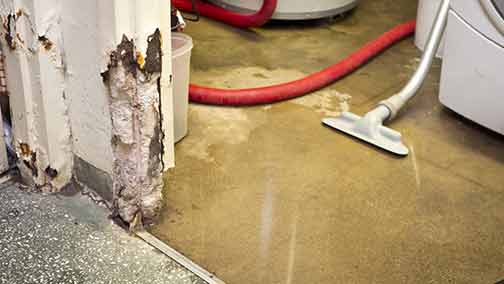
As a homeowner, you must take all necessary measures to protect your property from damage. One of the biggest threats to your property can strike at any time: sewer backups. Sewer backups can cause significant damage to your property and can cost thousands of dollars to fix. However, there are simple steps you can take to prevent sewer backups and protect your property.
What Causes Sewer Backups?
Sewer backups can occur due to several reasons. Some of these reasons include:
- Blockages caused by foreign objects in the sewer line
- Tree roots growing into the sewer line
- Collapsed sewer lines due to age or environmental factors
- Heavy rainfall or melting snow causing flood conditions
The Dangers of Sewer Backups
Sewer backups can be very dangerous, both for your property and your family. When a sewer line backs up, raw sewage can enter your home, causing damage to your walls, floors, and personal property. Additionally, raw sewage contains harmful pathogens that can cause serious health problems if not cleaned up properly. Breathing in raw sewage can also cause respiratory problems.

Simple Steps to Prevent Sewer Backups
Preventing sewer backups is relatively simple and can save you a lot of money in damages. Here are some simple steps you can take to prevent sewer backups in your home:
Properly Dispose of Fats, Oils, and Grease (FOG)
Fats, oils, and grease can cause blockages in your sewer line, leading to backups. Make sure to dispose of FOG properly by wiping out pans and containers with paper towels and throwing them away. Do not pour FOG down the drain.
Dispose of Other Foreign Objects Properly
Do not flush foreign objects down the toilet as they can cause blockages in the sewer line. Examples of foreign objects include baby wipes, feminine hygiene products, and paper towels.
Hire a Professional to Inspect Your Sewer Line
Hiring a professional to camera inspect your sewer line can catch any potential blockages before they become serious. A professional plumber can use a camera to inspect your sewer line and spot any potential issues.
Properly Maintain Trees and Shrubbery
Tree roots can cause blockages in your sewer line. Properly maintaining trees and shrubbery can prevent roots from growing into your sewer line. Do not plant trees or shrubbery near the sewer line.
Install a Backwater Valve
A backwater valve can prevent sewage from backing up into your home. This valve is installed in your sewer line and automatically closes when sewer water tries to enter your home.

Install a Sump Pump
A sump pump can prevent water from entering your basement during heavy rainfall. A sump pump installation will help pump the water out of your basement and away from your home.
What to Do if You Experience a Sewer Backup
If you experience a sewer backup, the first thing you should do is call a local plumber. The plumber can assess the damage and take steps to fix the problem. Do not attempt to clean up the mess yourself, as raw sewage contains harmful pathogens. Contact your insurance company to see if your homeowners’ policy covers sewer backups.
In Conclusion
Protecting your property from sewer backups is critical. Taking these simple steps can prevent damage to your property and save you a lot of money in damages. If you do experience a sewer backup, remember to call a professional plumber and do not attempt to clean up the mess yourself.

